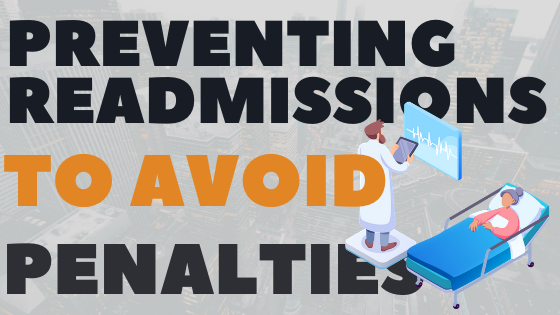The Affordable Care Act established a Hospitals Readmission Reduction Program (HRRP) that is financially impacting hospitals. The HRRP is a Medicare value-based purchasing program that reduces payments to hospitals with excess readmissions; the idea is to improve healthcare by linking payment to quality of care. Hospitals are assessed and compared to other hospitals with similar proportions of Medicare and Medicaid patients. Beginning this year, the Centers for Medicare and Medicaid Services (CMS) will publicly report each hospitals’ data on Hospital Compare, offering patients and their physicians a comparison tool when they are seeking hospital services.
Genesis Medical Management, your healthcare solutions experts, offers some strategies for hospitals to implement that have been proven to reduce readmissions, or show promise in doing so. From using the HOSPITAL Score, a validated prediction tool that identifies high risk readmissions, to improving self-management plans, ensuring home and community support, and coordinating care, there are numerous strategies that can be implemented to reduce readmissions.
HOSPITAL Score
A variety of research studies has shown that many clinicians are unable to determine which of their patient readmissions could have been prevented and that their causality varied greatly. A prediction tool has been created and validated in over 14 hospitals and 180,000 patients across five countries and three continents, the HOSPITAL Score. This model measures 7 variables: low hemoglobin at discharge, discharge from an Oncology service, low sodium on discharge, procedure during hospital stay, urgent/emergent admission, number of hospital admissions and length of stay. That formula is then used to provide a percentage of likelihood of readmission. The HOSPITAL Score is the most widely validated prediction model for readmission and helps hospitals to identify potentially avoidable readmissions.
Self-Management Plans
One factor that is commonly identified as contributing to readmissions is insufficient patient understanding or ability to self-manage. Ensuring that the discharge instructions given to a patient are clear and in language they can understand is important. Patients must have a clear understanding of their illness, and what to expect after discharge. A staff member should thoroughly review the care plan with the patient prior to discharge to ensure they understand what to expect, what medications they need to take, any care or precautions they must take, and who to contact for any potential problems.
Home and Community Support
Hospitals must be aware of the resources that are available for patients. Ensuring adequate social support can prevent readmissions. This includes possibly engaging social workers and community agencies for transportation to doctor appointments, delivered meals to ensure adequate nutrition, or counseling services for mental health patients. Ensuring engaged home support that is present for discharge communications can be crucial to ensuring compliance with and understanding of discharge instructions, especially with psychiatric patients. Confirming easy accessibility to any medications after discharge is essential. Case management with follow up communication is also effective.
Coordination of Care
Hospitals must coordinate care with outpatient providers by not just sharing medical records but actively ensuring follow up care. Aiding in making the follow up appointment prior to discharge strengthens the likelihood of the patient accessing that follow up care. Communication before and after that scheduled appointment for reminders and confirmation is effective. If no shared system exists between the hospital and their physician, then discharge summaries should be completed and transmitted promptly upon discharge.
Using this multifaceted approach can help hospitals to reduce their readmissions and protect their CMS funding. A reduction in readmissions will also provide patients and their providers with stronger confidence in the quality of care provided. Genesis Medical Management remains committed to providing your organization with innovative healthcare solutions.
Let's Grow Together!
We look forward to learning about your healthcare business to discover how GMM can create a profitable solution!

Contact Us

Navigation
Contact Us

